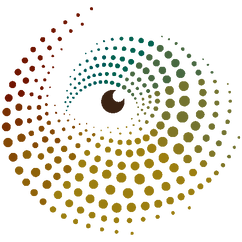Flow-Unity State
Being in allowance of the universal flow means entering a flow-unity state, or a state of Zen. The term Zen originates from Buddhist traditions and fundamentally refers to the “union between the organism and the environment.”
It is challenging to truly distinguish oneself as separate from the environment because, even on a practical level, survival depends on the atmosphere, food, and water. Going further, one’s distinct living environment, family of origin, and direct relationships contribute to a vast and intricate order of interdependence. We are both living life and being lived by it. A helpful metaphor is a person riding a horse—cooperation and non-resistance are required from both the rider and the horse, blurring the lines between whether the horse is riding the man or the man the horse.<br.
If we aim to understand the relationship between organism and environment, it’s essential to consider the distinction between voluntary and involuntary action within the organism (the internal environment). Take breathing, for example: do you breathe, or does breathing happen to you? Both perspectives are valid. Similarly, we might see ourselves as victims of illness or as contributors to it—both interpretations can coexist. Do you feel sad, or is sadness happening to you? Do you have depression, or do you depress yourself? Perhaps it’s both.
What we know for certain is that a lack of cooperation between the voluntary and involuntary aspects of the self creates unease and distress. What seems involuntary may simply be an unconscious part of the self, like a sneeze, a pain, or tension; yet, it remains part of the organism. As individuals learn to acknowledge and integrate these parts of themselves, they become more dynamic and in tune with the flow.
For example, clients should never be dissuaded from experiencing so-called negative feelings like “pity.” Instead, therapists can encourage clients to explore their relationship to such feelings, inviting them to understand their pity more deeply. This kind of inquiry transforms the client’s experience, as their reaction to their feelings is often shaped by unexamined prejudices and biases.
For this reason, we foster the flow-unity state through experiential means. We create opportunities for individuals to connect with their discord—whether with their bodies or their environment—and work toward cooperation and resolution. Additionally, we support clients in building healthier relationships with their families and surroundings, helping them find external harmony. This may include setting limits or establishing more effective boundaries.
Tags:
